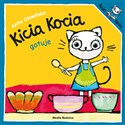Categories
- On sale!
- Albums
- Art and photography
- Audiobooks in Polish
- Biographies
- Armorials and genealogical tables
- Biographic dictionaries
- Biographies of saints
- Interviews
- Letters and epistemology
- Memoirs
- Calendars
- Comic books
- Crime and mystery
- Esoteric
- Fables
- Fiction
- Health and beauty
- History
- Hobbies and crafts
- Horrors and suspense
- How to books
- Iconography
- Kitchen and diets
- Language dictionaries
- Legends and fables
- Literatura erotyczna
- Literature in Polish
- Maps and guides
- Military and wars
- Movies
- Music
- Natural sciences
- Non-fiction books
- Notes and song books
- Polish books for children
- Polish Books for teens
- Polish Cookbooks
- Popular science
- Religion and faith
- Romance
- Science and popular science
- Science and scientists
- Science fiction
- Social sciences
- Speculative fiction
- Sport
- Technology
- Textbooks / schoolbooks
- Thrillers
- Zestawy. Torby. Plecaki. Tornistry. Worki
Subscribe to newsletters
Bestsellery
Polish Bookstore »
Biographies
»
Interviews
»
The End of the Game A Landmark Book on Africa Revisited 2020
Tip: Type the quantity (default is 1) and click "Add to cart" button to order online.











Powered by nopCommerce
CI by Agnieszka Antowska
Copyright © 2024 The Polish Bookstore - Polish books - Polska ksiegarnia w USA & Canada. All rights reserved.


























